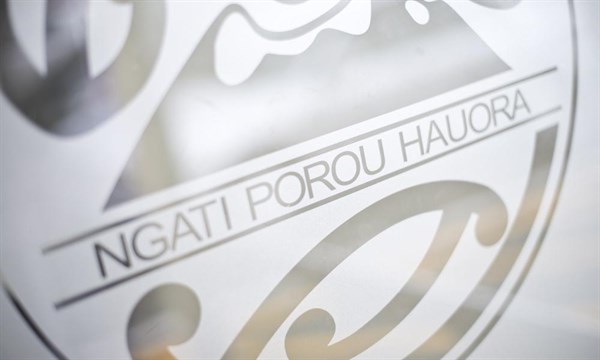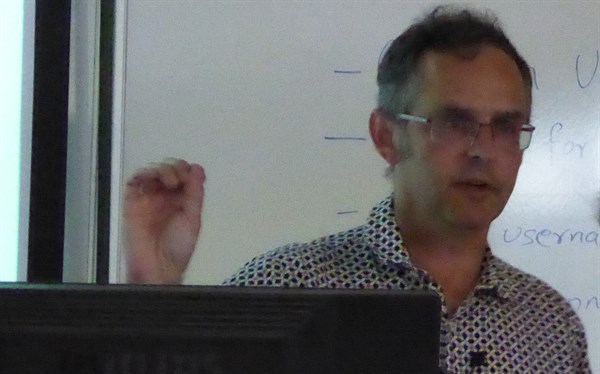MWC partners with Ngati Porou Hauora for new research centre on East Coast
13 December 2017
The Maurice Wilkins Centre and Ngāti Porou Hauora have concluded an agreement to set up a jointly managed health research centre based at Te Whare Hauora o Ngāti Porou, Te Puia Springs, on the North Island's East Coast.
In this partnership the Maurice Wilkins Centre will bring the expertise of many of New Zealand’s top scientists to the research programme. Ngāti Porou Hauora will contribute the clinical, kaiawhina and research expertise and experience of its staff.
The Maurice Wilkins Centre will provide seed funding for an initial project to get the venture established and in the longer term it is planned to expand using funding from sources such as the Health Research Council.
Type-2 diabetes a major priority
One of the most urgent priorities of the joint research centre will be type-2 diabetes given the very high levels of this disease amongst Ngāti Porou and throughout Tairāwhiti.
The initial studies will focus on understanding how genetics affect the development of diseases such as type-2 diabetes and related conditions like gout, particularly in Māori; and also how genetic variations effect how our bodies process sugar. The research will pave the way for precision medicine, where medical treatment is tailored to the individual.

One of the first research projects will be a study with high school students, their teachers and whanau to explore with them why some children absorb sugar well from their gut and others don’t and to understand the effect this has on body weight and health.
Another will focus on understanding the impact that newly identified gene variants can have on the risk of developing type-2 diabetes. A third arm of the research will focus on developing clinical trials to understand the benefits of new types of drugs that are used widely to treat type-2 diabetes overseas but aren’t currently available in New Zealand.
Teepa Wawatai, Chair of the Ngāti Porou Hauora Charitable Trust Board, says, “Diabetes, gout, heart and kidney disease are four of the most important health issues affecting our people and Ngāti Porou Hauora is excited to be working as an equal partner in developing this very important research programme.
"We believe this will result in better ways to prevent and treat these conditions while also delivering jobs and educational outcomes for our rangatahi. This mechanism allows us to deliver these outcomes in a way that doesn’t divert resources from our critical frontline healthcare roles.”
The joint health research centre originates from the 10-year Gout and Related Conditions: Genetics and Environment research programme co-developed by Ngāti Porou Hauora with Professor Tony Merriman and his team from the University of Otago.

Professor Tony Merriman, Department of Biochemistry, University of Otago, and Associate Investigator at the Maurice Wilkins Centre.
The new research centre takes this programme to the next stage of informing ways to better manage the health conditions that are preventing people from living well and living longer.
“Normally research like this is confined to universities in large cities and it is fantastic to partner with Ngāti Porou Hauora in this venture as there is no reason why such research can’t be co-led from this rohe,” says Professor Peter Shepherd, Deputy Director of the Maurice Wilkins Centre.
“We believe that the research studies will not only benefit Ngāti Porou and people in the Tairāwhiti region but will also have a major impact throughout the world in terms of our understanding of what causes type-2 diabetes and how we should best tackle it.”
About Ngāti Porou Hauora
Ngāti Porou Hauora (NPH) is a primary health organisation (PHO) and community healthcare provider serving all people within the Ngāti Porou rohe on the East Coast, from Potikirua in the north to Gisborne city in the south. It is situated within the Tairāwhiti District Health Board (Hauora Tairāwhiti) area.
A Te Runanganui o Ngāti Porou, Charitable Trust Board governs NPH, the smallest PHO in New Zealand.
With 88% of its enrolled population Māori, NPH has the highest proportion of Māori enrolled in a PHO. Its GPs, nurses and kaiawhina provide services through five rural primary healthcare centres, one urban health centre and the rural hospital, situated at Te Puia Springs 110km north of Gisborne city.
Since inception, NPH has been actively involved in research partnerships and projects, guided by the Board’s research policy and procedures.
Type-2 diabetes prevalence
More than 250,000 people in New Zealand have type-2 diabetes, with Māori and Pacific people affected at 2 to 3 times the levels observed in the general population.
The Tairāwhiti DHB region of the East Coast has the highest prevalence of type-2 diabetes at 7.3% of the population, with an even higher prevalence within the Ngati Porou rohe.